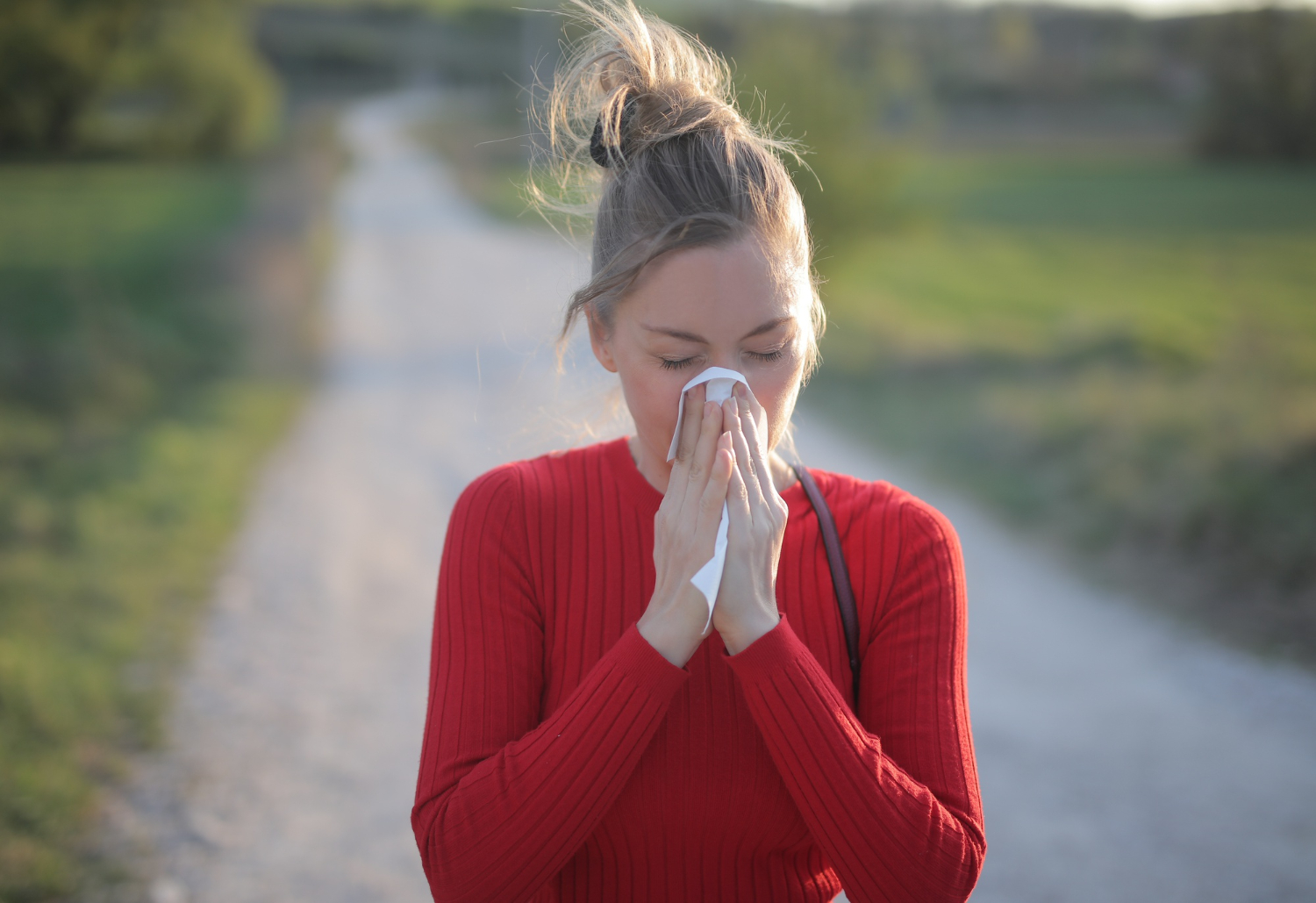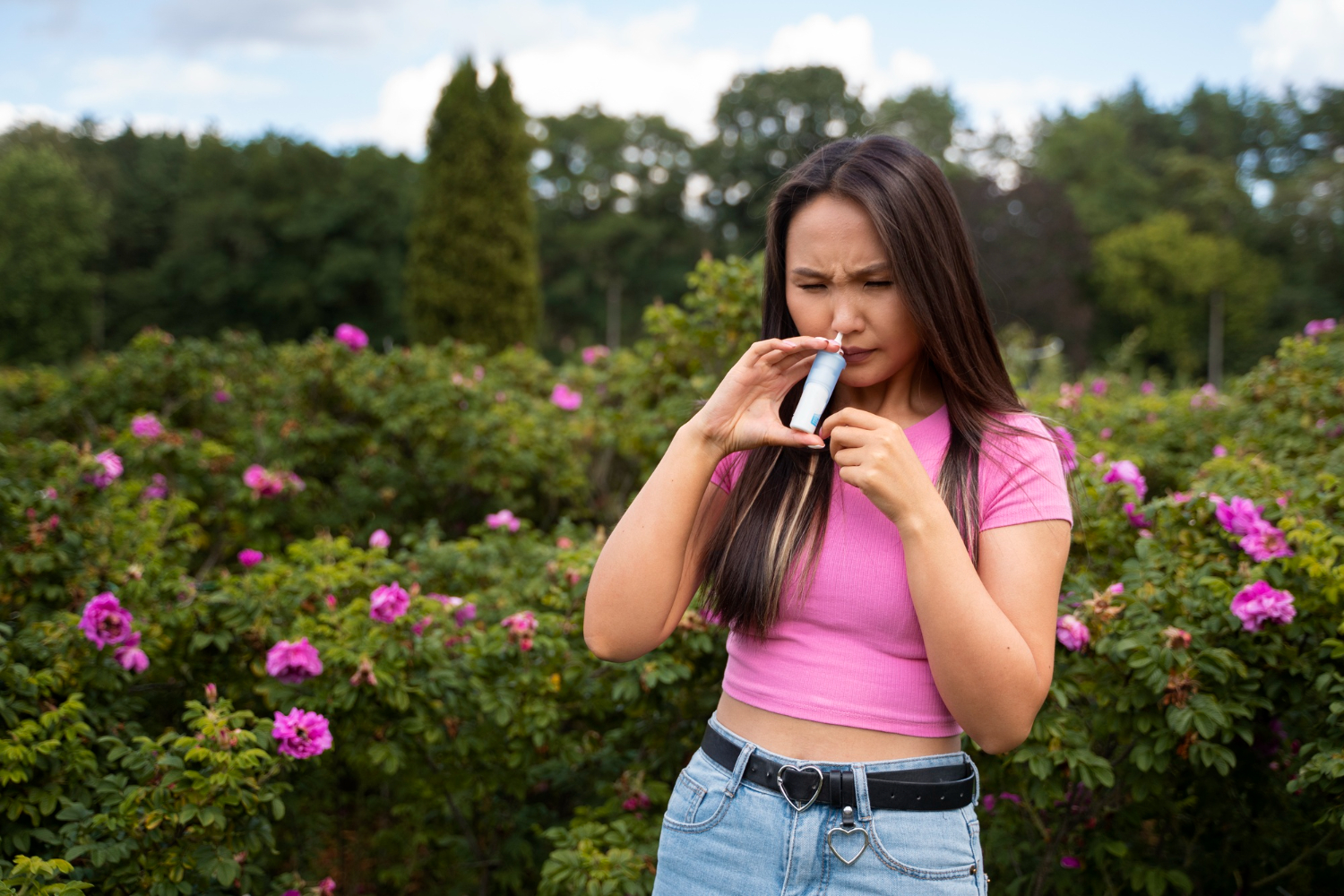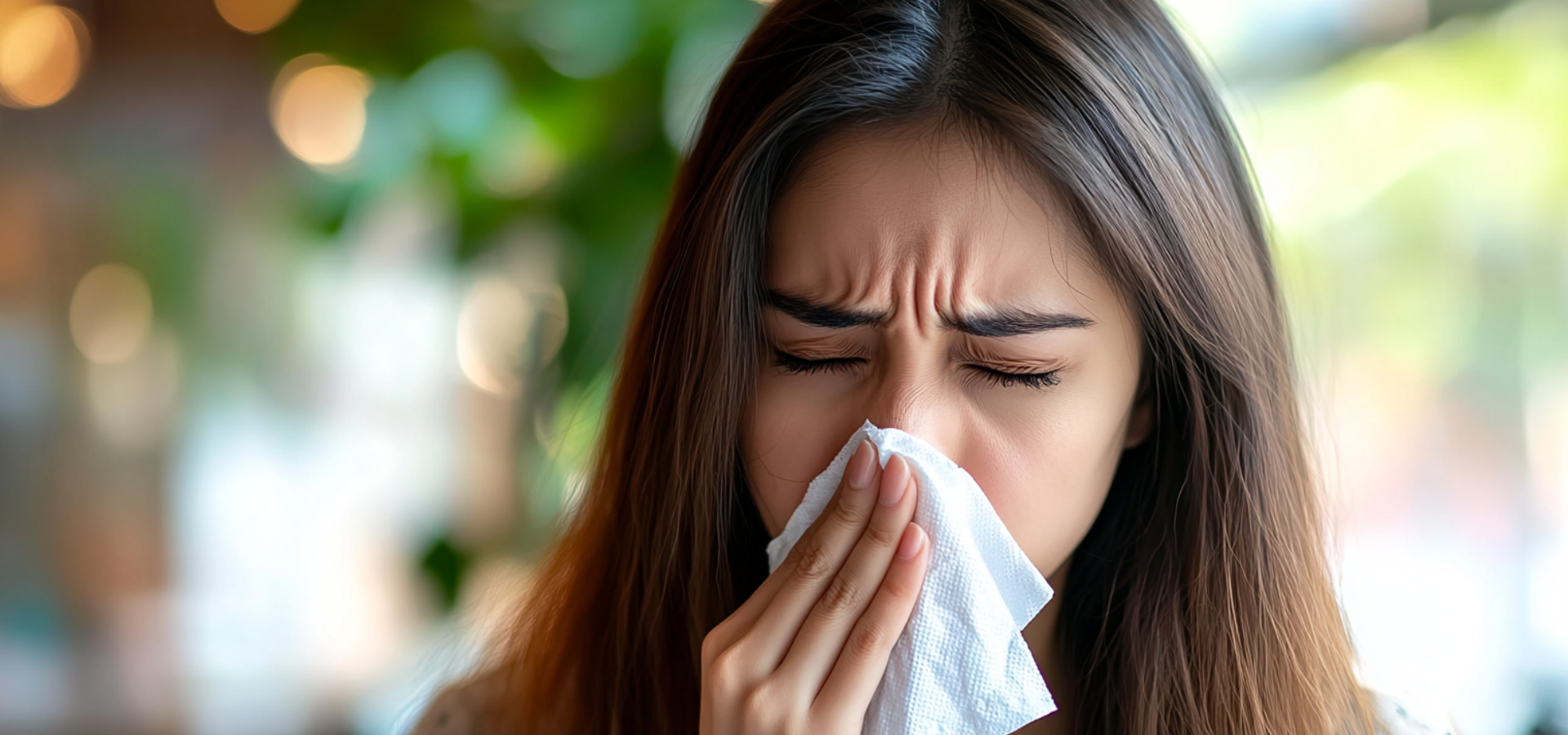
Severe Ragweed Allergy Symptoms
As an Austin resident, you must know that ragweed season in Austin hits hard. Turning what should be a delightful time of year into a daunting challenge for those with severe allergies.
At Frontier Allergist, we understand your struggle, your irritation, and how it impacts your routine. That’s why we’re committed to going beyond conventional advice, equipping you with advanced strategies and the latest medical treatment options.
Our expert team is here to guide you through Austin’s allergy season with proven techniques that minimize symptoms and maximize comfort.
Stay proactive with us, and continue reading!
Recognizing Severe Ragweed Allergy Symptoms
Knowing the signs of severe allergies is a must for timely intervention. Here, we detail the symptoms that demand attention and explain their amplified presence in our local environment.
Key Symptoms to Watch For
- Nasal and Sinus Discomfort: Beyond typical stuffiness, look out for intense sinus pressure and persistent headaches, which indicate severe reactions.
- Eye Irritation: Excessive itching and watering that significantly hinder your daily activities are a clear sign of allergy.
- Respiratory Difficulties: Wheezing and fatigued more than usual during Ragweed season? Consider getting an allergy test done to stay safe, especially if you’re someone with respiratory conditions.
- Skin Reactions: Notice any unusual hives or itchy patches? Ragweed might aggravate your skin, particularly if you have sensitive or reactive skin types.
Austin-Specific Concerns
- Longer Seasons, Stronger Symptoms: With our warm climate, ragweed thrives longer here, extending the discomfort period.
- Elevated Pollen Levels: High local pollen counts—especially during September—can intensify symptoms, making effective management strategies a necessity.

Impact of Severe Ragweed Allergies on Daily Life
Severe ragweed allergies can significantly disrupt your daily routine and affect various aspects of your life. Here’s how.
– Work or School: Severe allergies during ragweed season can make concentrating and performing effectively at work or school challenging. The constant discomfort and symptoms can interfere with your ability to focus, impacting your productivity and academic performance.
– Outdoor Activities: Engaging in outdoor activities becomes intimidating when you’re severely allergic to ragweed. The risk of exposure to pollen outdoors can exacerbate your allergy symptoms, forcing you to limit or avoid outdoor activities altogether unless you’ve taken precautionary measures.
– Quality of Life: The severity of ragweed allergies can significantly reduce your quality of life by limiting your ability to partake in social events, pursue hobbies, or enjoy time outdoors. It can lead to frustration, isolation, and a sense of being held back from fully experiencing life’s pleasures.
Importance of Early Identification and Diagnosis
Recognizing the symptoms of ragweed allergies at an early stage holds significant importance. It serves as the cornerstone for effective management and treatment of this condition. By identifying these symptoms sooner rather than later, people can take proactive measures to prevent them from exacerbating.
– Prevention of Worsening Symptoms: Early identification enables individuals to intervene promptly, preventing the escalation of symptoms. This can lead to a better quality of life and reduce the discomfort of ragweed allergies.
– Quicker Intervention: Early diagnosis allows for prompt initiation of treatment, leading to speedier relief from symptoms. Timely intervention can mitigate the impact of allergies and enhance overall well-being.
– Improved Treatment Effectiveness: When allergies are identified early, treatment strategies can more effectively address specific symptoms. This personalized approach enhances treatment efficacy, ensuring better outcomes for individuals affected by ragweed allergies.
Diagnosing Ragweed Allergies
Effectively managing severe ragweed allergies starts with a proper diagnosis. Recognizing when to seek professional help and understanding what to expect during an allergy test can make a significant difference in how you manage your condition.
When to See a Specialist
Not all allergy symptoms require a specialist’s care, but certain signs indicate it’s time to consult one. Consider seeing an allergist if you experience:
- Persistent Symptoms: If common remedies don’t alleviate your symptoms or if they persist beyond the typical ragweed season.
- Severe Reactions: Symptoms that interfere significantly with your daily life, such as extreme fatigue, persistent headaches, or difficulty breathing, are red flags.
- Ineffective Medication: Over-the-counter medications no longer reduce your symptoms effectively, indicating a need for specialized treatment.
- Complications: If you have asthma or other respiratory conditions that worsen during ragweed season.
An experienced allergist such as Neha Reshamwala can provide a tailored treatment plan that addresses your specific symptoms and improves your quality of life.
What to Expect During an Allergy Test
Allergy testing is a crucial step in confirming your sensitivity to ragweed pollen. Here’s what typically happens during an allergy test:
- Consultation: Your visit will start with a detailed discussion of your medical history and symptoms.
- Testing Methods: The most common test for ragweed allergies is the skin prick test, where a small amount of ragweed extract is placed on your skin to see if it causes a reaction.
- Immediate Results: Skin prick tests usually show results within 15-20 minutes, allowing quick identification of your allergens.
- Additional Testing: Depending on your symptoms, your allergist might recommend further tests, such as a blood test, to measure your immune system’s response to ragweed pollen.
Our allergist will clarify the entire process during the consultation, but knowing these steps beforehand can help reduce possible anxiety about the process.
Treatment Options for Ragweed Allergies
Effective management of severe ragweed allergies often involves a combination of medical interventions and immunotherapy. Understanding these options can significantly reduce symptoms and improve your daily life during allergy season.
– Antihistamines: These medications are great for quick relief. They can quickly calm down sneezing, itching, and a runny nose.
– Decongestants: If you’ve got a blocked nose, decongestants are the go-to option. They help clear up nasal congestion, making it easier to breathe.
– Corticosteroids: Nasal sprays and corticosteroids help reduce swelling in your nasal passages, offering relief from severe congestion and other irritating symptoms.
– Allergy Shots (Immunotherapy): Allergy shots involve injections containing a tiny amount of the allergen—in this case, ragweed pollen. Over time, these shots can help your body become more accustomed to the allergen, potentially reducing the severity of your reactions. This process is called immunotherapy, and it’s like a training program for your immune system to build up tolerance to the allergen.

Proactive Allergy Prevention Strategies
Combining smart lifestyle adjustments with strategic planning can drastically reduce the impact of ragweed allergies. Here’s how you can proactively manage your environment and activities to lessen exposure.
Environmental Control
- Home Adjustments: Utilize air purifiers with HEPA filters to clean indoor air and keep windows closed during high pollen days.
- Routine Changes: Schedule outdoor activities when pollen counts are lower, typically late afternoon or after rain. Always shower after being outdoors to remove pollen from your skin and hair.
Lifestyle Modifications
- Dietary Strategies: Include foods with natural antihistamine properties, such as vitamin C-rich fruits and quercetin-rich onions and apples, which can help reduce allergic reactions.
- Clothing Choices: Wear sunglasses and hats when outside to protect your eyes and head from pollen. Choose clothes that can be easily washed to rid them of pollen after outdoor exposure.
- Stay Informed: Use apps and websites to monitor real-time pollen forecasts. Adjust your plans to avoid outdoor activities on days with high pollen counts.
Seasonal Preparation
- Pre-Season Measures: Start preventive treatments like antihistamines a few weeks before the season begins. This can help reduce the severity of symptoms once pollen levels peak.
- Home and Car Prep: Replace air filters before ragweed season to ensure they effectively trap pollen and keep your living and travel environments as allergen-free as possible.
By integrating these proactive prevention strategies, you can better manage your exposure to ragweed pollen, ensuring a more comfortable and enjoyable season despite your allergies.
When to See an Allergist or Immunologist
If over-the-counter meds aren’t doing the trick, it might be time to consult a specialist. Allergists can offer more specialized treatments that might be better suited to your specific allergy needs.
Every person’s allergies are unique. Working closely with an allergist to create a personalized treatment plan can lead to better management of your symptoms.
Take Control of Your Ragweed Allergy
Managing severe ragweed allergy symptoms effectively is essential for your comfort and maintaining your overall health and well-being, especially in environments like Austin, where pollen counts are high. By understanding the various symptoms and recognizing when they are severe, you can take timely actions that significantly mitigate discomfort and prevent further complications.
We at Frontier Allergist are dedicated to providing personalized care that aligns with the latest advancements in allergy treatments and preventive strategies. Our specialists are equipped with the expertise and tools necessary to help you navigate your allergy management effectively.
Don’t let ragweed allergies control your life. Schedule a consultation with our experts at Frontier Allergist today.

Written/Reviewed by: Dr. Neha Reshamwala
NPI number: 1780874578
Page last reviewed: 02/25/2025


 All blog posts
All blog posts





